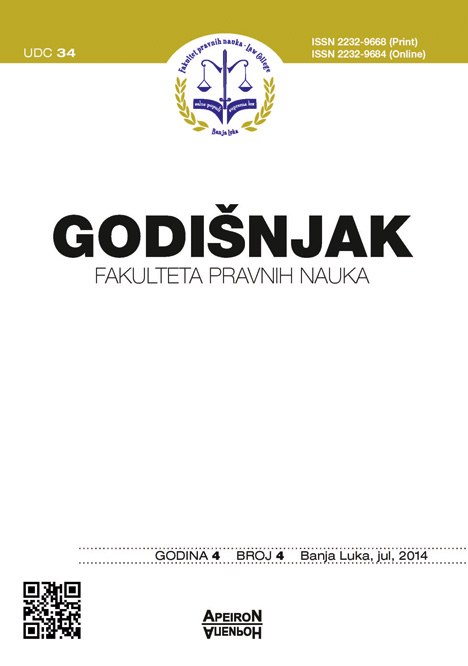The United Nations Convention on the Rights of the Child and its Importance in the Law of the Republic of Srpska in General, and Particularly in Juvenile Criminal Law of the Republic of Srpska / Konvencija Ujedinjenih nacija o pravima djeteta i njen značaj u pravu Republike Srpske uopšte, a posebno u maloljetničkom krivičnom pravu Republike Srpske
DOI:
https://doi.org/10.7251/GFP1404005MAbstract
Juvenile criminal law of the Republic of Srpska is a set of legal (and secondary) regulations governing the criminal justice status of juveniles as perpetrators of criminal acts and juveniles as victims, i.e. victims of crime. Certainly, it is a special part of the criminal law of the Republic of Srpska that, due to a number of specific solutions, has assumed the character of an independent legislative and scientific discipline in the Republic of Srpska, as in many modern European countries.
The main source of juvenile criminal law in the Republic of Srpska that has primacy in the application against juvenile offenders is the Law on the protection and treatment of children and juveniles in criminal proceedings (passed by the National Assembly of the Republic of Srpska in February 2010, published in the Official Gazette of the Republic of Srpska, number 13/2010; this law was amended at the end of 2013 - amendments to this law have been published in the Official Gazette of the Republic of Srpska, number 61/2013).
Certain legal standards set forth in a lot of international legal acts have a special role in the statutory formulation of this branch of the criminal law in all modern countries. The situation is similar in the Republic of Srpska where the international legal standards previously implemented by Bosnia and Herzegovina (and therefore also by the Republic of Srpska as a part of it) were the framework for the creation of the aforementioned legal texts and all bylaws regulating this very important field. In this paper, we will discuss one of the most important international legal documents - the United Nations Convention on the rights of the child.
